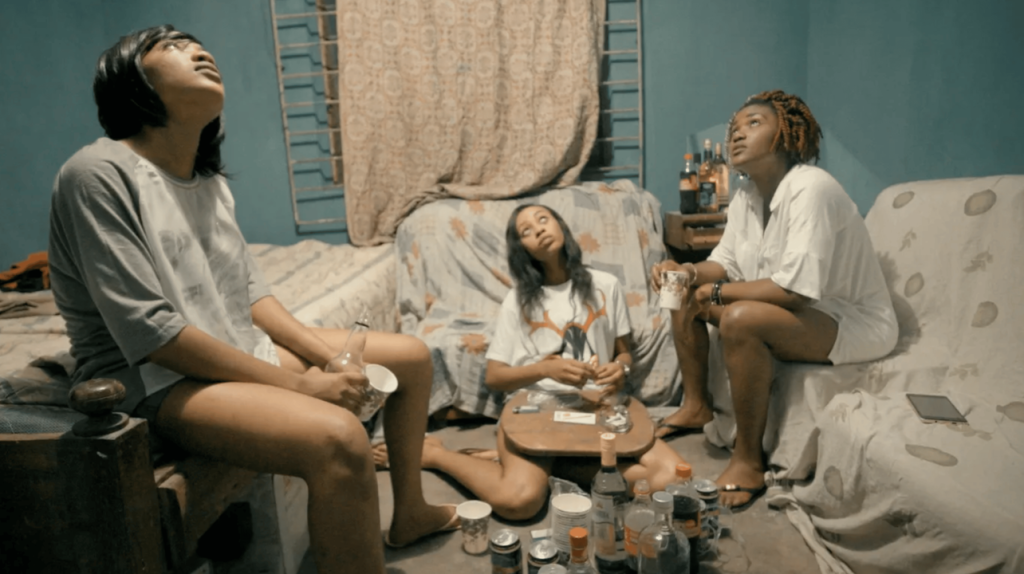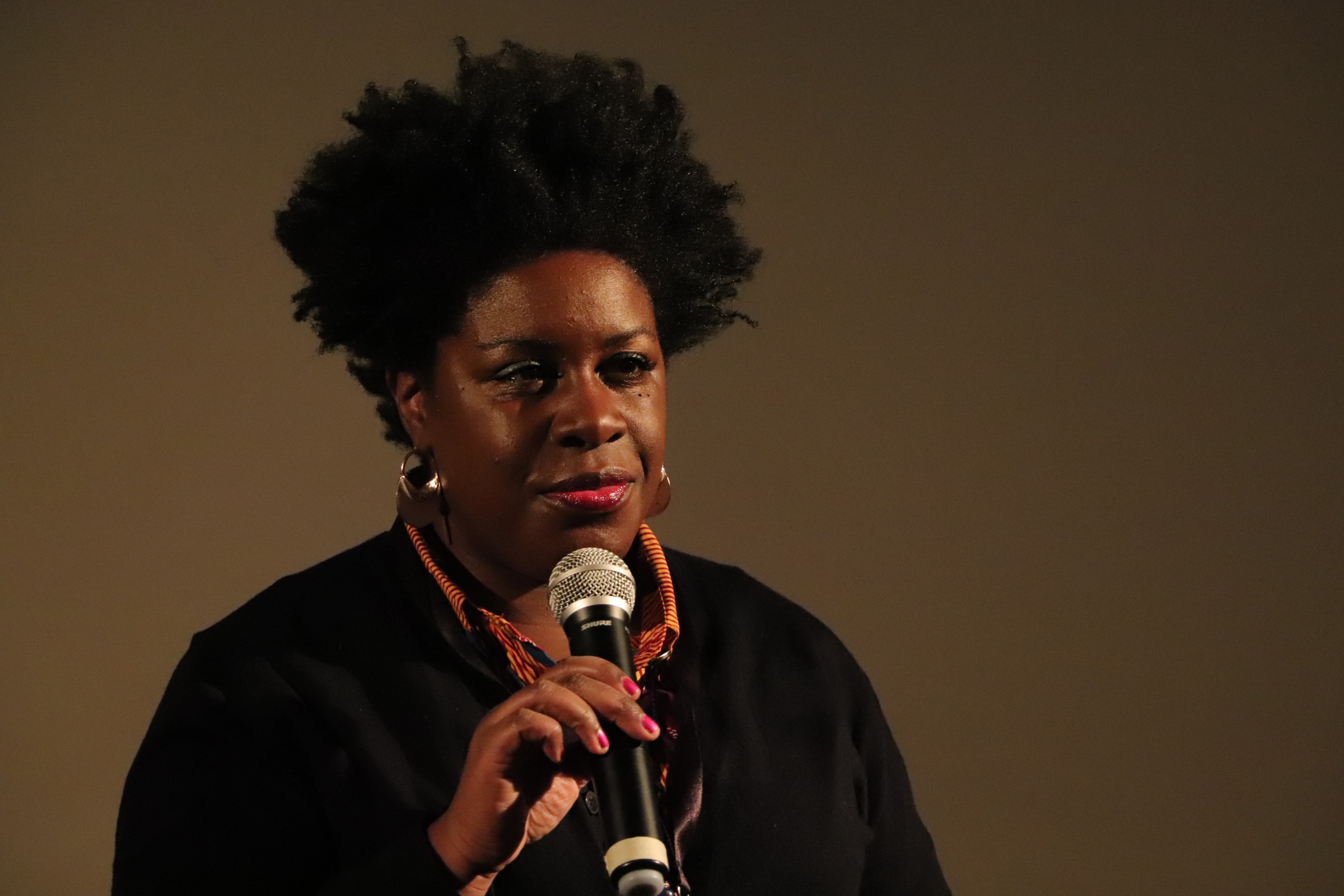Beyond Nollywood: A Counter-Position
Curator Nadia Denton talks about her programme on Nigerian cinema, that, with every iteration, has often played the role of bellwether.

Nadia Denton’s Beyond Nollywood has been around the world. The specially curated programme, which the British curator, author, and impact producer first envisioned circa 2014 upon the publication of her book “The Nigerian Filmmaker’s Guide to Success: Beyond Nollywood”, has been presented in Dresden, London, Rotterdam, São Paulo and now, Uppsala.
Beyond Nollywood comprises mostly short and medium-length films from Nigeria that reside in the outskirts of the country’s commercially inclined film industry, better known as Nollywood. Denton uses a title coined from her 2014 book as a catch-all descriptor for New Wave films or audiovisual content from Nigeria that fall within the arthouse, animation, documentary, or experimental formats. These films are trying different things in terms of style and form, inspired as they are by movements such as the French Nouvelle Vague or Italian neorealism. Their makers are less likely to have scored mainstream success (yet), but the work often points at possible new directions for film.
This sense of discovery has driven Denton’s curatorial engagement across the last decade, and with every iteration of the programme, Beyond Nollywood has often played the role of bellwether. For example, it has highlighted filmmakers like Abba T. Makama and Dami Orimogunje, even before they would achieve mainstream success. “I still feel that Nigeria could develop a distinct genre, and we are already seeing signs of this, especially with the spiritual mythology aspect,” Denton tells Talking Shorts, highlighting the recent crossover success of C.J. Obasi’s feature-length ‘Mami Wata’, which made a splash at this year’s Sundance.
On the occasion of presenting the Beyond Nollywood showcase titled “Wetin my eye don see, my mouth never fit talk am” (translated as “What my eyes have seen, my mouth cannot speak”) at the 42nd edition of the Uppsala International Short Film Festival, we caught up with Denton to discuss the ideas behind the curatorial work, as well as her hopes for Nigerian cinema.
We first met when you presented a Beyond Nollywood programme at Rotterdam in 2018. Five years later, what has that journey been like?
It has been exciting in that the programme has grown beyond what I expected when I started out with my early curatorial practice. I assumed it would be a one-off thing because it is largely self-funded. I get some support here and there, but I haven’t got a huge sponsor, and I am driving it myself. So, I am always very excited when a new festival or organisation gets in touch. Each invitation is a surprise to me, often unexpected. The truth is, I feel like it has a spiritual energy that has just taken forth as if I am the one following rather than dictating it.
How did you come to Nigerian cinema and Beyond Nollywood specifically?
I had been screening films of the African diasporas—as we referred to them back then—and showcased examples from the Caribbean, the United Kingdom, Africa, the Americas, and some work of Nigerian-based filmmakers, like Tunde Kelani. At one point, I noticed a trend and saw something happening within Nigeria. Exploring this led me to my book “The Nigerian Filmmakers Guide to Success: Beyond Nollywood.”
Working on the book opened my eyes to the potentialities of what Nigeria could become within the next decade or so, and not just in terms of cinema. Something was moving with the dynamism of the youth population and popular culture, which was increasingly being driven by music and fashion. There was a particular growth narrative about Nigeria, specifically Lagos. When I published the book, I found that people did not necessarily want to read but wanted to see the films. I realised that in order to illustrate the book’s message, I would have to show them. Beyond Nollywood, for me, is about the future of Nigerian filmmaking. These films present some puzzles and clues about what will likely emerge from West Africa that could become more international and have a certain place in the world cinema canon.
Beyond Nollywood represents films that could travel beyond local shores, but it also has to do with newer styles and formats of production.
Beyond Nollywood is a kind of ideology. Think of it as being different, an alternative that rises above the normal. The truth is many of the filmmakers I showcase are not necessarily accepted within the mainstream film industry because they believe their work isn’t inherently commercial. I am very fascinated by the experience of “the outsider”; how do they make something mundane look interesting or different? This practice of devaluing content because it doesn’t have a certain commercial capital—even though its artistic merits may be in excess of what the industry is producing—leaves people dissatisfied. That makes Beyond Nollywood a counter-position.
It’s also ultimately a collective endeavor. I have learned as much from the filmmakers I work with as they may have learned from the programme or by being at these festivals. Their experience has informed my curation and sense of what this programme could be and where it could go. I do not see myself as a sole curator in that sense, even though it may be presented like that on paper.

Nadia Denton at Uppsala Short Film Festival
There is a presumption when the word “alternative” is used for film. But in this case, “alternative” has a variety of meanings beyond arthouse fare, doesn’t it?
When I am talking about what’s “alternative” within the Nigerian context, it’s alternative to the more commercial television-streamer format. It’s content that would not find its way to streaming or TV, or even the theatres, because it would not ordinarily be a choice for audiences on the ground in Nigeria even though they are likely to enjoy it. These filmmakers work outside that capitalistic mode; they strive for other artistic virtues or have a certain social message to spread.
Can you track Beyond Nollywoods impact?
From some of the conversations I have had with filmmakers, getting robust critiques of their work has been really key. Many often complain that people around them tend to feel like they have only nice things to say or that the reflections they get on the work are broad and not so specialised. Beyond Nollywood has given some of them a certain sense of value because a lot get limited viewing at home since there is no strong festival circuit. The opportunity to play at international festivals is vital. At Uppsala, the filmmakers were pleased that there was still a chance to show their work even after a few years.
That said, it isn’t about the age of the film for me, but the quality. A film like ‘Black Barbie’ is perhaps more relevant now in the context of Greta Gerwig’s ‘Barbie’ film than when it was released in 2016. ‘Born’ has a timelessness to it as it deals with abortion as an outcome of relationships. It is essential to have a platform that immortalises the work, allows it to be critiqued, and creates an additional digital footprint. Ultimately, it encourages the filmmaker that there is still interest in their work, and perhaps that helps propel new types of insight or ideas for them.
The programme you presented in Uppsala is majorly women-centered. How did you approach the curation, and what theme(s) are you working with?
I wanted to reflect on the highs and lows of what it means to be a Nigerian woman through a thoughtful program that provokes feelings. I did not necessarily want to intellectualise it or elaborate on feminism. These are the experiences as documented by Nigerian filmmakers. It’s for audiences to reflect on that or make of it what they will.
The title, “Wetin my eye don see, my mouth never fit talk am” is so specifically Nigerian…
Many of my cultural references for Beyond Nollywood have come from Nigerian literature; these have been some of my best literary experiences. The programme titles are really important to me; I always want to locate them within the indigenous culture. One of the things we cannot deny about Nigeria is the use of idioms and parables to convey a world of meaning. That title in Pidgin is much more eloquent than anything I could express in English. You just can’t. It labels the programme as something very West African, very Nigerian. But perhaps even more so, I want people in Nigeria who might be reading this to recognise that there is something authentic in it. Whether they think Beyond Nollywood is authentic or not is another question.
You mention Beyond Nollywood as a bridge between Nigeria and the rest of the world. You’re also working with filmmakers in Nigeria and the diaspora. How do you find a balance between both worlds?
When putting together my programme, I tend to think more of the audience’s experience than the filmmaker’s location. One of the things I have found out is that audiences want to see Nigeria; they don’t want to see the UK. I don’t know whether audiences who come to see Beyond Nollywood are as interested in British Nigerians in, say, Manchester, as they are in Nigerians in Kogi State. And the truth is, we haven’t seen Nigeria on the big screen, really. This is a new journey we can embark on together with the audiences.

